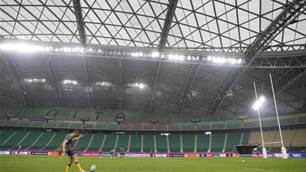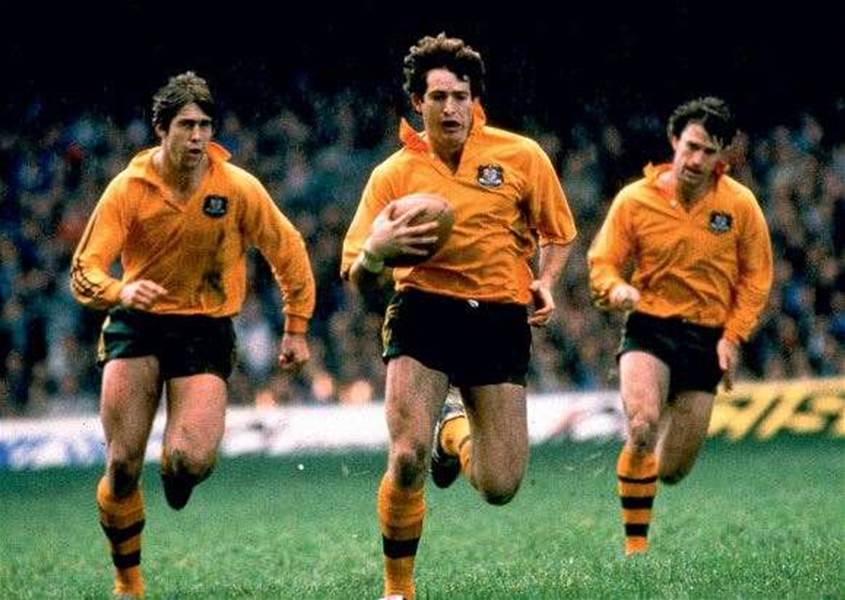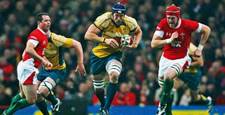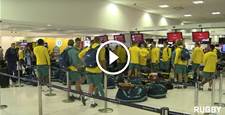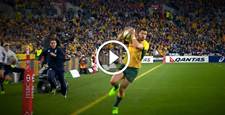When people talk of the Wallabies’ golden era, they wax lyrical over men like Farr-Jones, Lynagh, Eales, Gregan, Larkham. Often forgotten is Andrew Slack.
When people talk of the Wallabies’ golden era, they wax lyrical over men like Farr-Jones, Lynagh, Eales, Gregan, Larkham. Often forgotten is Andrew Slack. But this is a grave, grave oversight because Slack has played a pivotal role in shaping the game in these parts. A Brisbane boy by birth, and a rangy outside centre by persuasion, Slack made his international debut on the Wallabies’ rugged two-Test tour of Wales in 1978. The Australians came away from that series bruised and bloodied, but with a 2-0 series victory. Those disposals of a fine Welsh team laid the platform for the glory days of the Alan Jones era, where Australia concreted itself as a rugby superpower. And Slack was at the centre of it all. Renowned for his sharp thinking and statesman qualities, he captained the Wallabies through their Grand Slam tour of ’84 and their Bledisloe Cup victories in ’86. After the Wallabies’ fourth-place finish at the ’87 World Cup, he departed the scene with 39 Test caps and a gleaming reputation.
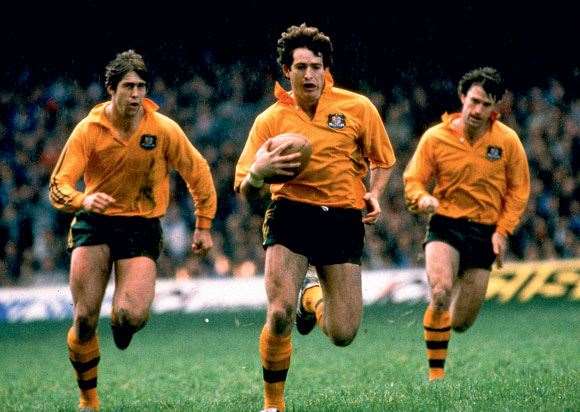 Roger Gould, David Campese and Slack on the fly during the ‘84 Grand Slam.
Roger Gould, David Campese and Slack on the fly during the ‘84 Grand Slam.Images: Getty Images
Come next month’s World Cup, Slack will be in the Shaky Isles, dispensing his wisdom for the Channel Nine microphones. Amidst whispers that another young Wallabies team may be on the verge of greatness, bend an ear to this gentleman of the 15-man game.
As a proud Queenslander, you must’ve loved watching the Reds this season?
Oh yes, particularly after all we’ve been through over the past decade ... And I think the best thing has been the way they’ve played. It’s added so much to this season. Because of their style of play people who are sports lovers – not just rugby people – have jumped on board. These people have enjoyed the Reds’ games for their pure excitement, rather than for their rugby content. I was reading this morning that the average Reds crowd this year will outdo the average Broncos crowd. That’s just phenomenal. So, yes, it’s been a great few months.
 Andrew Slack Portrait
Andrew Slack PortraitImages: Getty Images
As a proud New South Welshman, I must point to the role Ewen McKenzie’s played in the Reds’ success. Do you think he’s been lost in the picture in Queensland?
He certainly doesn’t get lost up here! “Link” has copped a lot of rightful praise ... What’s been most obvious about his coaching is his pragmatism. He just does what has to be done. He’s not afraid to take risks, but they’re always measured. He’s impressed everyone with his intelligence. He’s got the team feeling confident with one another and I think that’s the key to being a good coach. So, I don’t think you’d find anyone in Queensland who’d say Link hasn’t been lauded for what he’s done with the Reds.
Is McKenzie the man to replace Robbie Deans when he moves on?
Mate, I’d imagine he’s about three furlongs in front of anyone else at the moment. If Robbie suddenly decides he wants to get on the seniors golf tour and they needed a Wallabies coach tomorrow, I don’t think there’s any doubt it would be Link.
You’ve played with and watched some great Australian halves pairings – Farr-Jones and Lynagh, Gregan and Larkham. Where do Genia and Cooper fit in this lineage?
Well, the game’s obviously changed a lot in the way the halfbacks play ‒ if you go back to Hipwell, Farr-Jones, Gregan, the way each played is slightly different. But I think Will Genia is the sort of bloke who would’ve fitted into any era. By the time his career is over, I’m sure his name will flow into that list of halfbacks who have made history for Australian rugby. Genia’s a player for all ages.
Quade Cooper’s been absolutely brilliant this year. Part of his excitement is that you’re never sure what you’re going to get next, but the percentages have stacked up in his favour over the past few years. The good now far outweighs the bad, where I think early on it was probably the other way. He’s an extremely skilful player – he’s made for the way the
game needs to be played these days. With defence so strong now, players have to have that individual brilliance to break the line. So, I think these two blokes have worked an absolute treat. If you wanted a player for every day of the week, you’d take Genia. But without Cooper, Queensland wouldn’t be where they are now – that’s the other side of the coin.
So could these two surpass, say, the Gregan-Larkham combination?
I think so. But look at Gregan and Larkham: they had a few handy blokes in front of them like John Eales and Richard Harry and Toutai Kefu. I think as long as the pack stands on an equal footing with the other mob, Genia and Cooper certainly have the potential to be the equal of anything that’s gone before.
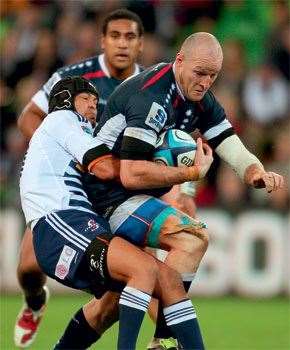 Will an aging Stirling Mortlock score a plane ticket to New Zealand?
Will an aging Stirling Mortlock score a plane ticket to New Zealand?Images: Getty Images
This year you described Cooper as the architect, Genia as the engineer and the Queensland Reds pack as the bricklayers. Do the Wallabies have the bricklayers?
Yeah, well ... potentially. There are a few guys in the pack who have got to prove themselves regularly at Test level. But the promise of the last 12 months would suggest these guys can prove themselves. And I’m talking about guys like Benn Robinson and Ben Alexander, the frontrowers. These guys have to improve every year. And they’ve been thereabouts over the past few years so, yes, I’m confident we do have the bricklayers. But I don’t think we can afford too many injuries in key positions. If we’re able to maintain our top eight, with three or four reserves, then I think we can compete with the best teams and give Genia and Cooper and O’Connor and the rest of those guys space to move.
It’s been a common criticism of the Wallabies that they’re not an 80-minute team. Why is this? Is it a captaincy issue? A fitness issue?
I don’t think it’s fitness. If it is, then, boy, we really are struggling ... I think it’s a maturing issue. And sometimes that is a captaincy issue – captains have to learn to mature, too. When I first captained Australia we lost a very tight series to the All Blacks, and I think if I’d captained better we would’ve won that series. But that was my first bash and I’d like to think I got better. And I think that scenario encompasses the whole team. We’ve got young players who aren’t used to playing at Test-match intensity for 80 minutes. To use another sporting analogy, look at Bernard Tomic in the Wimbledon quarters. He was brilliant for a set or two, but when push came to shove he lost the plot. Well, it’s the same thing in footy. You might have 15 blokes on the field, but you only need one or two of them to have a wayward moment and you’re sunk. And I think that’s been the main issue ...
Prediction: who’ll contest the Rugby World Cup final and who’ll win?
Look, there’s been no such thing as a certainty in the semi-final stage of the World Cup ... But you’ve got to go the All Blacks. Anyone who thinks the All Blacks aren’t favourites to win, well, I don’t know what their logic is. The All Blacks have got fantastic depth and I don’t think the pressure’s going to be a major issue. So they’re favourites. And the other final contender? Well, if I was born in Durban, I’d probably say South Africa, but I’m born in Brisbane, so I’m going to say Australia. And I don’t say that on a whim. The All Blacks are the clear favourites and we’re leading the pack of chasers.
Having captained the Wallabies at the ’87 World Cup, you must understand the pressures of being favourites in a home tournament. Is this pressure going to be an issue for Richie McCaw and the All Blacks?
To be honest, I’ve never understood this notion of the favourites being under pressure. Once he runs out on to the field, no footballer’s thinking about how the newspapers expect his team to win. I’ve never met a player who thinks like that. Perhaps other things can distract you, but I can’t see how everybody else thinking you’re going to win is one of those things. So I’ve never bought into the argument that favouritism makes it harder. Besides, in that ‘87 World Cup, I think the All Blacks were the clear favourites. Yes, we beat them
in ‘86, but we’d really run our race by ‘87. We were an ageing team by that time.
What about Sonny Bill Williams – the bloke’s a physical freak. Is he going to change the way the game’s played?
Well, I think all the players have changed a hell of a lot in the last five or ten years. A player like Sonny Bill has been developing for a while – he’s just the prototype. So, no, I don’t think he’s the Walter Lindrum of rugby; I don’t think he’s the bloke who’ll force the rule changes. I just think he’s part of an evolution. A big part of it ... The midfield’s just getting bigger and bigger and the blokes are getting faster and faster. I’m not sure how much longer teams can afford to have little guys in the midfield. In fact, I think that’s been proven already ...
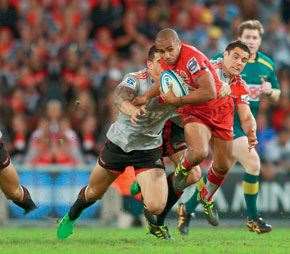 Andrew Slack reckons Will Genia is a player for all eras. Plenty agree.
Andrew Slack reckons Will Genia is a player for all eras. Plenty agree.Images: Getty Images
That doesn’t bode well for the Wallabies ...
Well, that’s one of our issues. And it’s one of the reasons why I wonder whether Stirling Mortlock will get a sniff at World Cup selection. Yes, James O’Connor’s a great player, and he’s enormously strong, and he’s probably best at inside centre, but I get the feeling these big guys eventually wear the smaller guys down. I see that as a real issue for us. Maybe the selectors could look at inserting Digby Ioane in there for some extra grunt.
Your first two Tests for the Wallabies were against Wales in ’78. Those matches are still renowned for their brutality. Any special memories?
I remember getting punched by some Welshman ... Look, that series got that reputation because Steve Finnane punched the Welsh prop Graham Price at the Sydney Cricket Ground earlier that year. He broke his jaw. In today’s world that would’ve been the end of the season for Steve, but back then that’s just the way it was ... But another side to those Tests is that we beat Wales at home. The Welsh were the Five Nations champions at that time and while Australia had been okay as a Test nation, we’d never been regular winners against the really good sides. So beating Wales at home really got the Wallabies’ ball rolling. I think that led to the ’84 Grand Slam and the ’91 World Cup. Those wins against the Welsh lifted our expectations.
Alan Jones must’ve been an interesting bloke to work with. Any memorable words from the man?
None that could be repeated in a printable fashion ... Alan’s obviously an orator – he’s always fascinating to listen to, even if you don’t agree with him all the time. I always remember this great speech he made before the Scottish Test on the Grand Slam tour. He created this story about the Romanian gymnast Nadia Comaneci and the gold medals she won at the Montreal Olympics as a 14-year-old. And the point of his story was this: when the world press asked her how she did it she said, “I just think about getting it right.” The point
was the “it”. Alan drew the comparison with every minute of the game we were about to play: get it right. Whatever the it is you are doing in any given minute, get it right. It was something that really stuck in our heads as we were playing that game, and it’s something that’s stuck with me ever since.
Any memorable blow ups from Jones?
Well, most of these rugby stories don’t really translate to print. But there was one moment on that ‘84 tour – we were in Cork – where we had a bunch of drinks and did whatever you did back then before getting to bed in the early hours. The next morning we had a meeting before we went to training and Jonesy was just screaming and yelling and carrying on. He gave us the biggest serve of the whole tour. And the theme of it was our bodies: you’re training so hard your bodies are sore! You’re playing so many games your bodies are sore! You don’t need to be downing copious amounts of grog and sucking down cigarettes because you’re body will get even sorer! The whole theme was that we don’t want sore bodies! It was full bore. Anyway, the meeting finished and we’re heading down to the bus when Chris Roche – Jonesy and he weren’t exactly the tightest pair – turned to me and said, “Mate, the only part of my body that’s fucken sore is my ears ... ” Very funny at the time.
‒ Aaron Scott
Related Articles
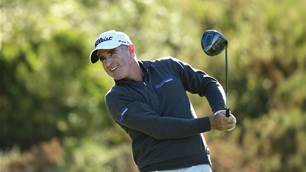
Video interview: Drinks With ... Matt Millar
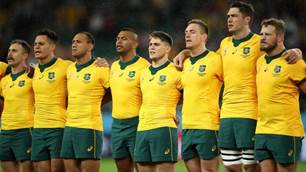
Analysis! Wallabies well beaten in RWC Quarter-Final
